During his lifetime Herchel Smith endowed four Cambridge Professorships, in:
-
Immunology
-
Medicinal Chemistry
-
Organic Chemistry
-
Intellectual Property Law
In his will he bequested five new Professorships, in:
-
Pure Mathematics
-
Physics
-
Biochemistry
-
Molecular Biology
-
Molecular Genetics
Academic Staff
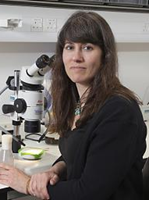
Professor Andrea Brand, Professorship in Molecular Biology
Discovering how stem cells are maintained in a multipotent state and how their progeny differentiate into distinct cellular fates is a key step in the therapeutic use of stem cells to repair tissues after damage or disease. We are investigating the genetic networks that regulate stem cells in the Drosophila central nervous system. We use classical and reverse genetics, high resolution imaging and genome-wide transcriptional profiling to identify the molecular switches controlling the transition from symmetric to asymmetric division and from self-renewal to differentiation. We are characterising the genetic networks that control the transition from a neural stem cell to a specialised neuronal or glial cell type. By identifying neural stem cell-specific genes, and genes specific for differentiating daughters, we can begin to assess the potential for inducing neurons to divide in a regenerative manner, or for directing stem cells to differentiate into specific neuronal subtypes.
Website: https://www.gurdon.cam.ac.uk/research/brand
Email: ahb1000@cam.ac.uk
Discovering how stem cells are maintained in a multipotent state and how their progeny differentiate into distinct cellular fates is a key step in the therapeutic use of stem cells to repair tissues after damage or disease. We are investigating the genetic networks that regulate stem cells in the Drosophila central nervous system. We use classical and reverse genetics, high resolution imaging and genome-wide transcriptional profiling to identify the molecular switches controlling the transition from symmetric to asymmetric division and from self-renewal to differentiation. We are characterising the genetic networks that control the transition from a neural stem cell to a specialised neuronal or glial cell type. By identifying neural stem cell-specific genes, and genes specific for differentiating daughters, we can begin to assess the potential for inducing neurons to divide in a regenerative manner, or for directing stem cells to differentiate into specific neuronal subtypes.
Website: https://www.gurdon.cam.ac.uk/research/brand
Email: ahb1000@cam.ac.uk
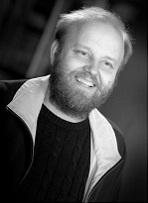
Professor Jussi Taipale, Professorship in Biochemistry
Decades of work by biological scientists have revealed many fundamental mechanisms of life. Yet several fundamental questions remain unanswered, in part because they are difficult to study using established methods and technologies that mainly analyse or model behaviour of few molecules in isolation, or the effect of loss of one or a few genes on cellular or organismal functions. The principal aim of my laboratory is to understand two systems-level questions that are presently poorly understood: the mechanisms that control growth of tissues and organisms, and the rules that determine how DNA sequence determines when and where genes are expressed.
Website: https://www.bioc.cam.ac.uk/news/jussitaipale
Email: ajt208@cam.ac.uk
Decades of work by biological scientists have revealed many fundamental mechanisms of life. Yet several fundamental questions remain unanswered, in part because they are difficult to study using established methods and technologies that mainly analyse or model behaviour of few molecules in isolation, or the effect of loss of one or a few genes on cellular or organismal functions. The principal aim of my laboratory is to understand two systems-level questions that are presently poorly understood: the mechanisms that control growth of tissues and organisms, and the rules that determine how DNA sequence determines when and where genes are expressed.
Website: https://www.bioc.cam.ac.uk/news/jussitaipale
Email: ajt208@cam.ac.uk
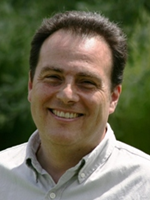
Professor Benjamin Simons, Professorship in Physics
I am interested in applying methods of non-equilibrium statistical mechanics and population dynamics to lineage tracing studies to investigate mechanisms of stem cell fate in development and maintenance. As well as neurogenesis in adult mammalian tissues, I have collaborations on the maintenance of epidermis, intestinal epithelium and germ line. I am also working on development of retina and spinal cord.
Website: www.phy.cam.ac.uk/people/simonsb.php
Email: bds10@cam.ac.uk
I am interested in applying methods of non-equilibrium statistical mechanics and population dynamics to lineage tracing studies to investigate mechanisms of stem cell fate in development and maintenance. As well as neurogenesis in adult mammalian tissues, I have collaborations on the maintenance of epidermis, intestinal epithelium and germ line. I am also working on development of retina and spinal cord.
Website: www.phy.cam.ac.uk/people/simonsb.php
Email: bds10@cam.ac.uk
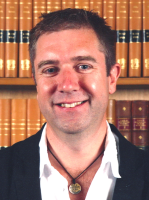
Professor Chris Hunter, Professorship in Organic Chemistry
The aim of my research is to develop tools that will reliably predict the properties of molecular ensembles based on the chemical structures of the components and their interactions. In the last century, chemists developed design rules for synthesis that have made it possible to create almost any molecular structure at will, and we have reaped the rewards in the form of new medicines, pigments and plastics. The next generation of technological advances will be based on the assembly of molecular building blocks into more complex architectures, and I aim to provide the scientific foundations for this field. Although this research is fundamental chemistry, there are many applications of the basic principles in molecular biology, materials science and the chemical industry.
Website: www-hunter.ch.cam.ac.uk
Email: ch664@cam.ac.uk
The aim of my research is to develop tools that will reliably predict the properties of molecular ensembles based on the chemical structures of the components and their interactions. In the last century, chemists developed design rules for synthesis that have made it possible to create almost any molecular structure at will, and we have reaped the rewards in the form of new medicines, pigments and plastics. The next generation of technological advances will be based on the assembly of molecular building blocks into more complex architectures, and I aim to provide the scientific foundations for this field. Although this research is fundamental chemistry, there are many applications of the basic principles in molecular biology, materials science and the chemical industry.
Website: www-hunter.ch.cam.ac.uk
Email: ch664@cam.ac.uk

Professor Eric Miska, Professorship in Molecular Genetics
My laboratory is investigating how cells decide to divide to generate all the cells of the body, to become different from each other to form different tissues such as muscle brain or blood. If cells get these decisions wrong, cancer may be the consequence. Our particular focus is a class of small regulatory genes (microRNAs) that act like molecular switches and control many aspects of development and are likely directly involved in human cancer. To better understand the biology of microRNAs we are studying a very simple animal, the roundworm Caenorhabditis elegans, as well as human cancer cells.
Website: http://ericmiskalab.org/
Email: eam29@cam.ac.uk
My laboratory is investigating how cells decide to divide to generate all the cells of the body, to become different from each other to form different tissues such as muscle brain or blood. If cells get these decisions wrong, cancer may be the consequence. Our particular focus is a class of small regulatory genes (microRNAs) that act like molecular switches and control many aspects of development and are likely directly involved in human cancer. To better understand the biology of microRNAs we are studying a very simple animal, the roundworm Caenorhabditis elegans, as well as human cancer cells.
Website: http://ericmiskalab.org/
Email: eam29@cam.ac.uk
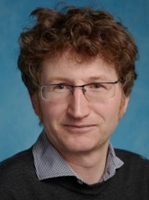
Professor Lionel Bently, Professorship in Intellectual Property Law
Intellectual Property. History of Copyright, History of Trademarks, History of Patents. Breach of Confidence.
Website: http://www.law.cam.ac.uk/people/academic/l-a-f-bently/1109
Email: lb329@cam.ac.uk
Intellectual Property. History of Copyright, History of Trademarks, History of Patents. Breach of Confidence.
Website: http://www.law.cam.ac.uk/people/academic/l-a-f-bently/1109
Email: lb329@cam.ac.uk

Professor Pierre Raphaël , Herchel Smith Professor of Pure Mathematics
Pierre Raphaël is the Herchel Smith Professor of Pure Mathematics. He is an expert in the theoretical study of non linear partial differential equations and his research lies at the border between physics and pure mathematics. Non linear wave dynamics is the heart of the description of many physical systems for example in astrophysics, electromagnetism or fluid mechanics, but despite some immense theoretical progress in the 20th century and the more recent help of computer simulations, basic fundamental questions remain completely open. The possibility of extreme non linear dynamics related to energy concentration mechanisms and the formation of singularities has in particular attracted a considerable amount of attention for the past century, and is at the heart of one of the Millenium Clay Problems. Prof. Raphaël is a leading expert in this field, with in particular fundamental contributions to the description of singularities for the non linear Schrödinger equations, and more recently the Navier Stokes equations of compressible fluids. After graduating from École Polytechnique (France), he receives his PhD in Mathematics from the University of Cergy-Pontoise, and moves to Princeton (USA) as an Assistant Professor. He returns to France as the principal investigator of several European grants, and after holding Professor positions in Toulouse and then Nice, he joins Cambridge’s Department of Pure Mathematics and Mathematical Statistics in 2019. He is invited to the joint PDE/Mathematical physics sessions ot the International Congress of Mathematicians in 2014. He is awarded the Grand Prix Alexandre Joannides 2014 from the French Academy of Sciences and a Royal Society Wolfson Fellowship in 2019.
Website: https://www.maths.cam.ac.uk/person/pr463
Email: pr463@cam.ac.uk
Pierre Raphaël is the Herchel Smith Professor of Pure Mathematics. He is an expert in the theoretical study of non linear partial differential equations and his research lies at the border between physics and pure mathematics. Non linear wave dynamics is the heart of the description of many physical systems for example in astrophysics, electromagnetism or fluid mechanics, but despite some immense theoretical progress in the 20th century and the more recent help of computer simulations, basic fundamental questions remain completely open. The possibility of extreme non linear dynamics related to energy concentration mechanisms and the formation of singularities has in particular attracted a considerable amount of attention for the past century, and is at the heart of one of the Millenium Clay Problems. Prof. Raphaël is a leading expert in this field, with in particular fundamental contributions to the description of singularities for the non linear Schrödinger equations, and more recently the Navier Stokes equations of compressible fluids. After graduating from École Polytechnique (France), he receives his PhD in Mathematics from the University of Cergy-Pontoise, and moves to Princeton (USA) as an Assistant Professor. He returns to France as the principal investigator of several European grants, and after holding Professor positions in Toulouse and then Nice, he joins Cambridge’s Department of Pure Mathematics and Mathematical Statistics in 2019. He is invited to the joint PDE/Mathematical physics sessions ot the International Congress of Mathematicians in 2014. He is awarded the Grand Prix Alexandre Joannides 2014 from the French Academy of Sciences and a Royal Society Wolfson Fellowship in 2019.
Website: https://www.maths.cam.ac.uk/person/pr463
Email: pr463@cam.ac.uk

Professor Sir Shankar Balasubramanian, Professorship in Medicinal Chemistry
Our group’s research is focused on the chemical biology of nucleic acids, and employs the principles of chemistry and the molecular sciences to address questions of importance in biology and medicine. Projects are inherently interdisciplinary and will provide scope for a diversity of intellectual and experimental approaches that include: organic synthesis, biophysics, molecular and cellular biology and genomics. Our scientific goals are problem-driven, which constantly raises the need to invent new methodology.
Website: http://www-shankar.ch.cam.ac.uk
Email: sb10031@cam.ac.uk
Our group’s research is focused on the chemical biology of nucleic acids, and employs the principles of chemistry and the molecular sciences to address questions of importance in biology and medicine. Projects are inherently interdisciplinary and will provide scope for a diversity of intellectual and experimental approaches that include: organic synthesis, biophysics, molecular and cellular biology and genomics. Our scientific goals are problem-driven, which constantly raises the need to invent new methodology.
Website: http://www-shankar.ch.cam.ac.uk
Email: sb10031@cam.ac.uk
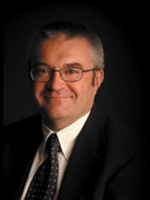
Dr Adrian Carpenter, Lectureship in Medicinal Chemistry
Our group develops new techniques for the acquisition and analysis of PET and MR images to improve our understanding of the pathophysiology of disease. We also develop novel instrumentation, for example we are an internationally leading centre developing hybrid PET/MR scanners.
Website: www.neuroscience.cam.ac.uk/directory/profile.php?tac12
Email: tac12@cam.ac.uk
Our group develops new techniques for the acquisition and analysis of PET and MR images to improve our understanding of the pathophysiology of disease. We also develop novel instrumentation, for example we are an internationally leading centre developing hybrid PET/MR scanners.
Website: www.neuroscience.cam.ac.uk/directory/profile.php?tac12
Email: tac12@cam.ac.uk
